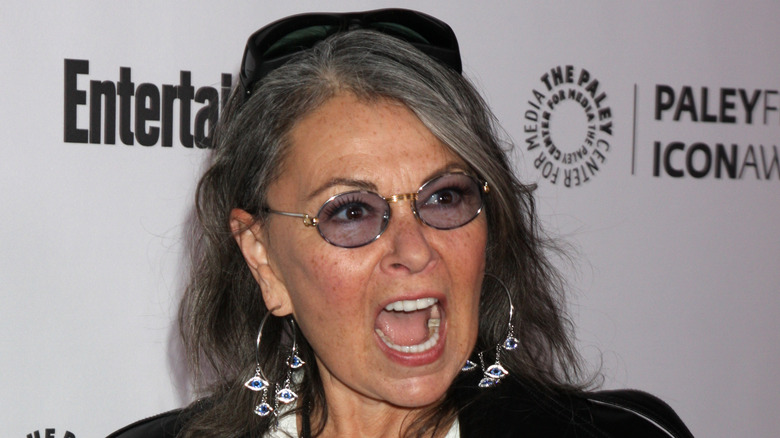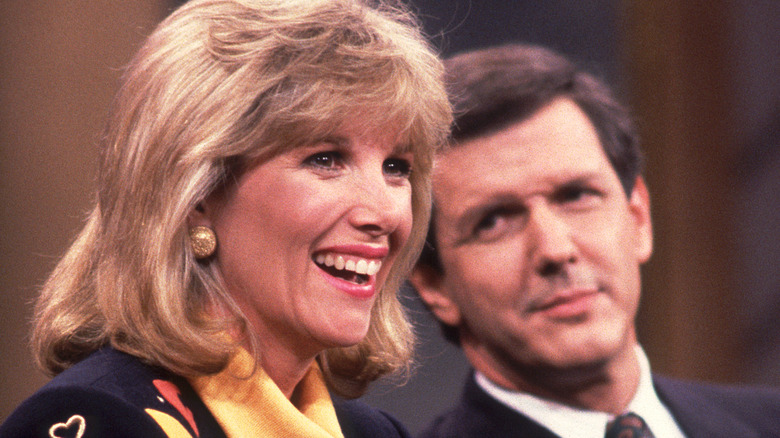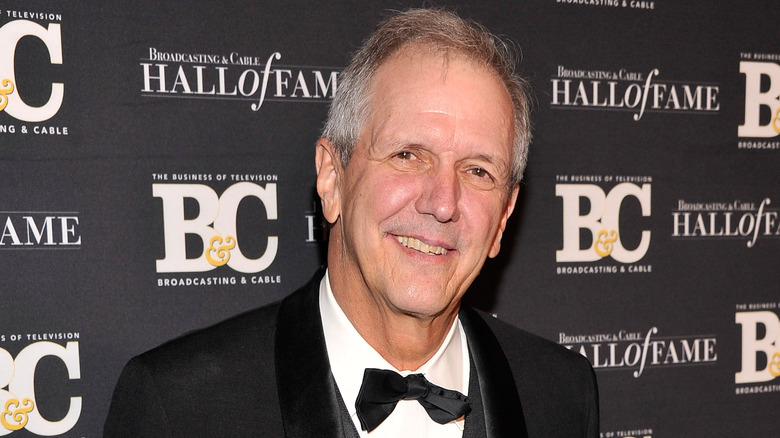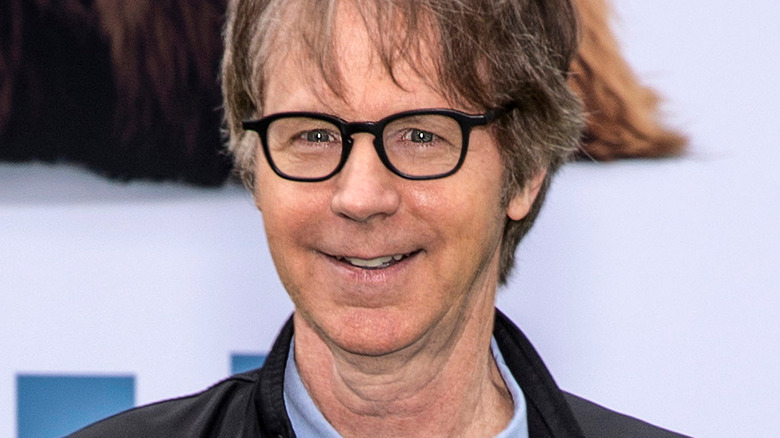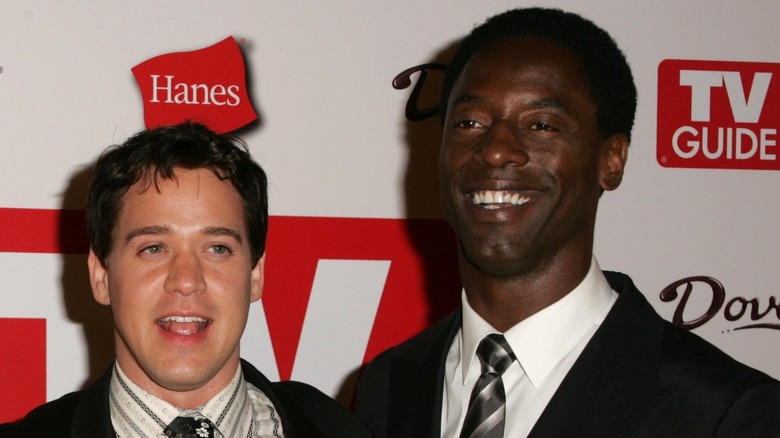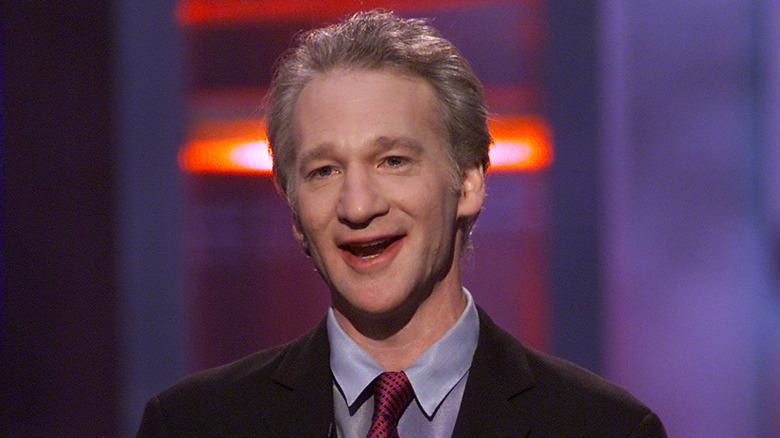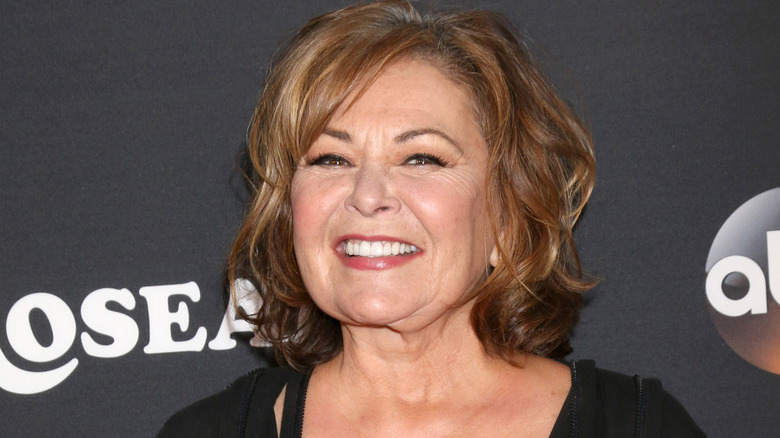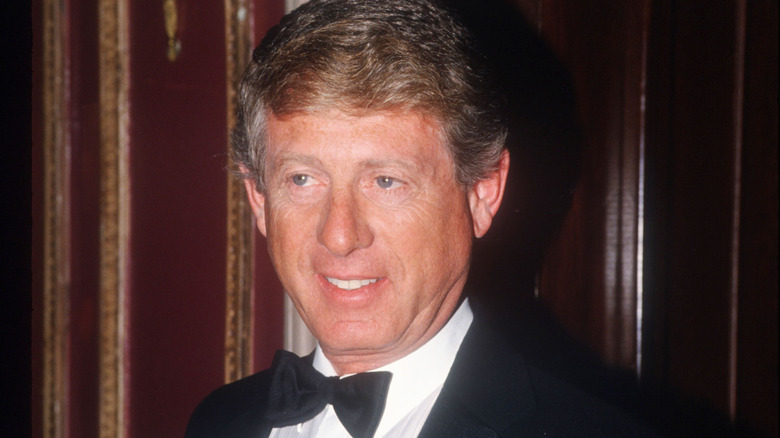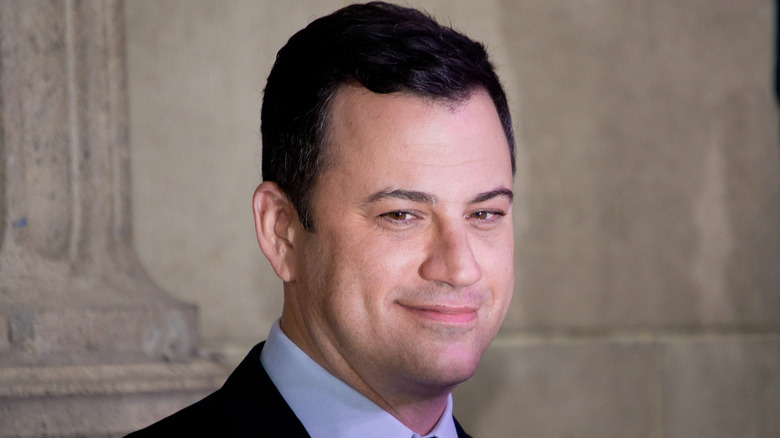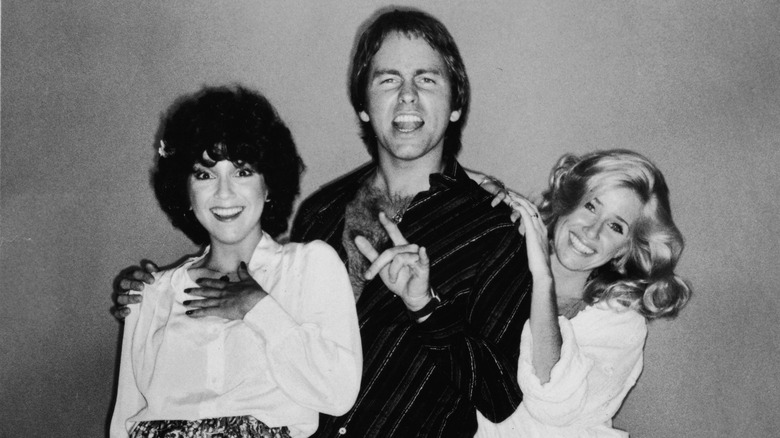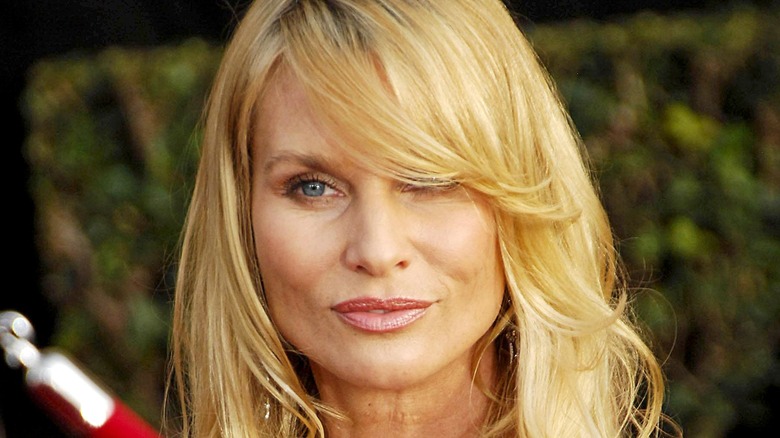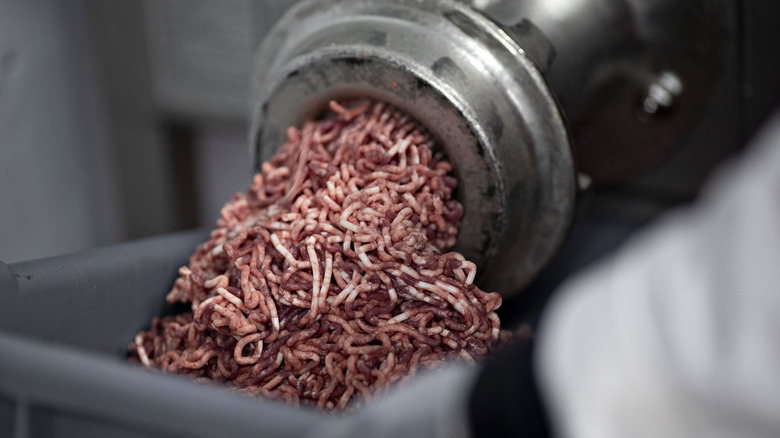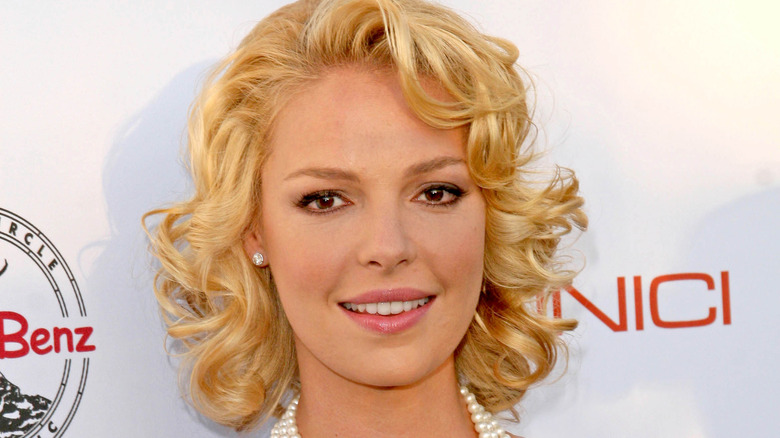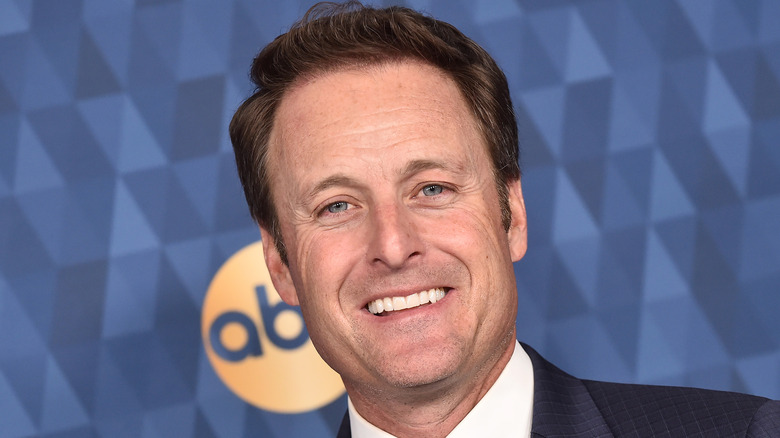ABC's Biggest Scandals Ever
It's one of the most dominant of the five major broadcast networks and part of an entertainment monolith controlled by The Walt Disney Company, but at once point in time, the American Broadcasting Company, or ABC, was a scrappy little upstart in the developing world of television. Going on the air in 1949 against NBC and CBS, which had grown out of major radio operations, ABC didn't take long to develop a signature programming slate as well as a legacy and reputation for airing popular sitcoms, respectable news shows, and edgy dramas. If not for ABC, classic and beloved shows including "Modern Family," "The Brady Bunch," "Happy Days," "Home Improvement," "Roseanne," "Scandal," "Grey's Anatomy," "Nightline," "Lost," "Growing Pains," "Bewitched," and "20/20" might never have made it to television at all.
Being a provider of entertainment also sets up a company for a lot to go wrong. There are so many people working on so many shows over such a long period, that something was found to break along the way. Here are all the times ABC made the news for scandal and controversy.
The ageism scandal of Good Morning America
ABC News debuted "Good Morning America" in 1975, but it didn't much challenge NBC's "Today" until the late 1980s, with the hosting duo of Joan Lunden and Charles Gibson. In 1997, Lunden announced her departure from the show she'd co-hosted for 17 years, but which had "trailed NBC's "Today" show in the ratings for 88 weeks," per the Los Angeles Times. "I've been offered several scripts," Lunden told the newspaper, indicating a move into acting, although she also signed a book deal around the time of her third exit and there were rumors of a syndicated talk show, but ultimately Lunden said she wanted to spend more time with her three young children. Less than a year later, per The New York Times, Gibson left "Good Morning America," too, after more than 10 years.
The real reason for the switch-up, according to Lunden: age. "The words are, 'We've decided to make a change on the show,' and so they found a 30-year-old version of me," Lunden later told "Oprah: Where Are They Now," alluding to her replacement, Lisa McCree, who was actually 25 when she got Lunden's old job. The anchor said ageism was a factor in Gibson's exit, too, as the 56-year-old's successor was 38-year-old Kevin Newman. The ouster didn't even work. Ratings continued to falter, and in 1999, ABC News dispatched with McCree and Newman and brought in Diane Sawyer... and Charles Gibson.
How Charles Gibson clawed his way to ABC World News Tonight
Ever wonder what happened to Charles Gibson? Well, he ended up in the center of yet another game of musical anchor chairs at ABC that resulted in hurt feelings and the network coming off poorly. Following the death of longtime "World News Tonight" anchor Peter Jennings in 2005, ABC named Bob Woodruff and Elizabeth Vargas, a former "Good Morning America" reporter, co-anchors of the nightly program. Just about six months later, both were out — Woodruff because of a severe injury suffered while on-assignment in Iraq, while Vargas became pregnant and went on maternity leave, per NPR, planning to return to ABC to work on "20/20." That meant the new and sole anchor of ABC's "World News Tonight" would be former "Good Morning America" co-host Charles Gibson.
How he got the job is a little bit more complicated than ABC may have led viewers to believe. According to New York, Gibson was still bitter with ABC over how he'd been fired from "Good Morning America" and he wanted a better job — the nightly anchor gig — and more money, too. He threatened to leave ABC entirely if he didn't get what he wanted. ABC acquiesced, but at the expense of losing Vargas and overlooking veteran TV journalist Diane Sawyer.
The Dana Carvey Show upset advertisers and ABC
One of the biggest, most breakout stars of "Saturday Night Live" in the late 1980s and early 1990s was Dana Carvey. A comic force of nature, he provided both prominent impressions — Johnny Carson, President George H.W. Bush, Paul McCartney — and some of the show's most popular characters, too, including the Church Lady, Hans (of "Hans and Franz") and Garth (of "Wayne's World"). When he was ready to return to TV in 1996 a few years after leaving "SNL," it was a majorly anticipated event when ABC ordered "The Dana Carvey Show," a 30-minute primetime sketch comedy series.
Giving the show a plum time slot after mega-hit "Home Improvement," Disney-owned ABC likely expected the mild, crowd-pleasing comedy Carvey had performed on "SNL." What it got was a weird and edgy series written by future comedy superstars including Louis C.K., Stephen Colbert, Steve Carell, and Charlie Kaufman. Carvey and company pushed the network's buttons from the drop — the first sketch featured Carvey as President Bill Clinton breastfeeding a litter of puppies. According to the Los Angeles Times, that very sketch sent Taco Bill running. The company was actually a "title sponsor," meaning that this first episode was titled "The Taco Bell Dana Carvey Show," mocking overstepping advertising. All that, plus dropping ratings, likely led to ABC to reduce its order of "The Dana Carvey Show" from 13 to eight episodes, and then cancelling it after seven.
Anatomy of a really ugly Grey's Anatomy backstage scandal
A combination of sexy soap opera and high-stakes medical drama made "Grey's Anatomy" a hit for ABC from its outset. Debuting as a midseason replacement in early 2005, the show finished the season as the #5 show on broadcast television. Nearly every member of the ensemble cast playing doctors, surgeons, nurses, interns, and residents became a star, including Isaiah Washington, who portrayed cardiothoracic surgeon Dr. Preston Burke, and T.R. Knight, who played surgical intern George O'Malley.
Those two actors were involved in an on-set incident in October 2006, according to People. Washington and co-star Patrick Dempsey got into a heated argument, during which Washington allegedly referred to Knight by an unprintable slur used to describe homosexuals. Washington issued an apology, but when news of the fight broke, it forced Knight to publicly come out as a gay man to People.
A few months later, at a Golden Globes event, Washington denied he'd used the slur... and then used the slur. "No, I did not call T.R. a f****t," Washington said (per the The Washington Post). "Never happened, never happened." Once again, Washington issued another apology, while ABC released a statement, outlining its "longstanding policy to maintain respectful workplaces." At the conclusion of the third season of "Grey's Anatomy," in June 2007, ABC Studios confirmed (via Entertainment Weekly) that it had fired Isaiah Washington.
Bill Maher was a little too politically incorrect for ABC
After primarily programming only the newsmagazine "Nightline" in its post-local news late night slot, ABC got into the comedy talk show business in 1997 with "Politically Incorrect." The series, hosted by acerbic stand-up comedian Bill Maher, ran for four years on Comedy Central before making the jump to network TV, where it continued to encourage spirited debate about current events from its ever-changing panel of four guests that included actors, writers, pundits, and elected officials from across the political spectrum.
It's arguable that Maher's commentary in the days after the terrorist attacks of 9/11 were the most controversial thing he ever said on "Politically Incorrect," because it's what got the show cancelled. According to The New York Times, on the Sept. 17, 2001, episode, Maher and guest Dinesh D'Souza discussed President George W. Bush's remarks that the terrorists who had hijacked planes and crashed them into U.S. sites were "cowards." D'Souza disagreed, calling the terrorists people who "slammed themselves into pieces of concrete," and labeling them "warriors." Maher concurred, calling the American government "the cowards, lobbing curse missiles from 2,000 miles away," and that "staying in the airplane when it hits the building" was "not cowardly." Some affiliates then refused to air the show, and Maher released a statement clarifying that his remarks were not an attack on the U.S. military. Ratings fell and advertisers pulled out over the next few months, prompting ABC to cancel "Politically Incorrect" in May 2002.
ABC had no time for Roseanne Barr's scandalous tweets
One of the biggest new shows of the 2017-18 TV season was an old show. ABC's revival of the 1988-1997 sitcom "Roseanne," about the working-class Conner family and starring stand-up Roseanne Barr, finished the year as the second-most-watched scripted show on network TV. ABC ordered a second season of the very popular series before making a shocking reversal and cancelling "Roseanne."
In the early hours of May 20, 2018, Barr tweeted her thoughts on Valerie Jarrett, a senior advisor in the administration of President Barack Obama. Barr compared Jarrett (via NBC News) to an organization that some have called a terrorist group and likened her appearance (Jarrett is Black) to that of an ape. When the backlash began, Barr deleted the tweet and then apologized (via Variety), writing, "I am truly sorry for making a bad joke about her politics and her looks. I should have known better."
But the fallout came anyway, and then kept coming. Show writer Wanda Sykes announced her resignation from the show on Twitter, cast member Sara Gilbert called Barr's comments "abhorrent," and ABC Entertainment President Channing Dungey delivered the fatal blow. "Roseanne's Twitter statement is abhorrent, repugnant and inconsistent with our values, and we have decided to cancel her show," she said in a statement (via The Hollywood Reporter). ABC then had another change of heart and ordered "The Conners," a continuation of "Roseanne," in which Barr's character, Roseanne Conner, had died.
ABC affiliates made a scandal out of this Nightline tribute
ABC's longest-running late-night show isn't a comedy variety program — it's "Nightline," an in-depth ABC News production that takes a deep dive into its subject, usually a complex current event. Journalist Ted Koppel, the host of "Nightline" since its origin in 1980, broke the format in April 2004, and added 10 minutes to the show, with a simple and stark reflection on the ongoing war in Iraq. According to CBS News, "Nightline" displayed a photo of every American serviceperson killed in the conflict since it began in March 2003, with Koppel soberly reading their name, age, military branch, and rank. There was no commentary, and no music or graphics — just a remembrance of the deceased for 40 minutes.
It proved controversial. Sinclair Broadcast Group refused to air "Nightline" on seven ABC affiliates it owned (per "Today"), alleging that the "Nightline" gesture was a subtle and innate protest against the Iraq War. Koppel defended his action in a brief introduction in the episode. "This was never intended to be about us," he said. "Tonight is just going to be about the men and women who have died in the war in Iraq." "Nightline" repeated the concept in May 2004 with the names of military members killed in the war in Afghanistan, and in May 2005 with a list of those who died in Iraq and Afghanistan since the previous broadcasts.
Nothing Sacred didn't hold much sacred, and then it was nothing
In 1997, and early into its run as a subsidiary of family entertainment juggernaut Disney, ABC's primetime lineup consisted mainly of innocuous fare, including "Home Improvement," "Boy Meets World," and "The Drew Carey Show." And then into the mix came "Nothing Sacred," a Thursdays-at-8 p.m. drama about a young Roman Catholic priest in Chicago named Father Ray (Kevin Anderson), who, while coping with the staggering problems of the modern world and his congregants, greatly questions his faith and his choice to become a member of the clergy. He also nearly has an affair with a woman, a major violation of his priestly vows.
The Catholic League, America's most prominent and biggest "Catholic civil rights organization" and religious defense organization, deeply and vocally objected to "Nothing Sacred." The group, likening the show to "sacrilege" (per The New York Times), urged American Catholics to boycott "Nothing Sacred," but to hit ABC where it hurt, in the ledger, advocating the boycott of the show's sponsors, too. ABC ultimately buried the show in a little-watched Saturday night time slot before cancelling it in March 1998.
Jimmy Kimmel's old material turned scandalous
As the host of "Jimmy Kimmel Live" since 2003, host Jimmy Kimmel has remained largely noncontroversial, at least, when compared with his time hosting Comedy Central's edgy "The Man Show." In 2020, some of the more problematic bits from that sketch comedy series came back to haunt Kimmel, a de facto face of ABC as its late-night standard-bearer and go-to host for special events, including the Academy Awards and Emmy Awards. On more than one occasion on "The Man Show," Kimmel performed imitations of Black celebrities, including Oprah Winfrey and NBA star Karl Malone. In portraying those characters from 1999 to 2003, Kimmel donned blackface, according to The New York Times.
In June 2020, Hollywood reckoned with its relatively recent use of blackface makeup, with Jimmy Fallon apologizing on "The Tonight Show" for darkening his skin to play Chris Rock in a 2000 "Saturday Night Live" sketch and Tina Fey authorizing the removal of a "30 Rock" episode from streaming services for blackface content. The conversation turned to Kimmel's controversial make-up use on "The Man Show," and after a few weeks of online criticism, he released a statement, saying, in part, "I never considered that this might be seen as anything other than an imitation of a fellow human being, one that had no more to do with Karl's skin color than it did his bulging muscles and bald head."
The scandalous way ABC fired Suzanne Somers from Three's Company
"Three's Company" was TV's number two show from 1978 to 1980. Viewers were compelled by the provocative (at the time) premise: swinging bachelor Jack Tripper (John Ritter) shared a bungalow with two young women, sharp Janet Wood (Joyce DeWitt) and ditzy Chrissy Snow (Suzanne Somers). Somers was also a major part of the popularity of "Three's Company," portraying Chrissy as the quintessential "dumb blonde," a broadly likable comic character who also wore a lot of tight and skimpy outfits.
In 1980, Somers was up for a contract renewal, and she asked for a raise from $30,000 to $150,000 per episode — roughly the amount that major male stars earned at the time, per Biography. Producers said no. "The show's response was, 'Who do you think you are?'" Somers recalled to People. "They said, 'John Ritter is the star.'"
Somers was forced to finish the season, but with a greatly reduced role. She appears at the end of an episode and speaks on the phone to Jack or Janet. "They built a little side set — it was crazy what they did. They would have a police guard come meet me at the back door, walk me in. I was not allowed to see anybody from the original show, only the wardrobe guy, who would bring me a pair of shorts and something," Somers told the Television Foundation Academy. After her contract was fulfilled, Somers was fired and replaced by Jenilee Harrison as a new, Chrissy-like character.
Nicolette Sheridan dragged ABC into court over her Desperate Housewives termination
ABC's "Desperate Housewives" was one of the hottest shows on TV in the mid-2000s, a comic soap set in a suburban neighborhood with a modest exterior hiding a world of scandal. Nicolette Sheridan played the show's villain, Edie Britt, with campy relish, and in recompense for making life miserable and complicated for the good housewives, this bad one met her end in Season 5. Edie crashed her car into an electric pole, and when she emerged, stepped in a puddle and fatally electrocuted herself.
Sheridan wasn't happy about it. According to The Hollywood Reporter, she didn't get along with "Desperate Housewives" creator Marc Cherry, and to the point of violence. "I was a victim of assault and battery by my boss on the set," Sheridan later alleged on "The Talk" (via Deadline), "and I reported him and was retaliated against and fired off the show. All of which is illegal."
To that end, Sheridan sued ABC and Cherry for $20 million, citing wrongful termination, assault and battery, gender violence, and discrimination based on sex and sexual orientation (Cherry is a gay man, Sheridan a heterosexual woman), and infliction of emotional distress, per The Wrap. According to The Hollywood Reporter, the assault in question was "a light tap on the side of the head" per an ABC investigation, and that Sheridan's claims were "without merit." The suit stretched on for years, and according to the AP, a judge dismissed the case in 2013.
ABC News caused a scandal with 'pink slime'
In September 2012, ABC News ran a series of investigative reports on "finely textured beef," a type of ground meat product that accounted for around 70 percent of beef sales in the United States, according to CBS News. In its coverage, ABC likened finely textured beef to "pink slime," a term coined by interviewee and USDA microbiologist Gerald Zirnstein, per The Hollywood Reporter, as the product contained a substance consisting of cost-saving fillers, lower-grade meat trimmings, and bacteria-killing ammonia. The large South Dakota-based meat processing company Beef Products Inc., which provided the vast majority of this kind of ground beef to American grocery stores, restaurants, and institutional kitchens, sued ABC News for $1.2 billion, alleging that the organization's reporting contained "false and misleading and defamatory" statements numbering in the hundreds, and that it had led to a consumer backlash and dramatic drop in beef sales. BPI claimed that sales of its beef had gone from five million pounds a week to under two million in the wake of the ABC News reports. Moreover, BPI claimed it shut down three of its plants and lay off 650 employees.
"The lawsuit is without merit," ABC News vice president Jeffrey Schneider said via statement. "We will contest it vigorously." And contest it vigorously they did — for five years. ABC parent company Disney settled the case in June 2017, agreeing to pay $177 million, which was a record for corporate defamation cases of this type.
Katherine Heigl's scandalous Grey's Anatomy exit
Portraying surgical oncologist Dr. Izzie Stevens for five years on "Grey's Anatomy" was a bridge for Katherine Heigl, who went from teen roles in "My Father the Hero" and on "Roswell," to roles in grown-up movies "27 Dresses," "One for the Money," and "Knocked Up." Heigl won an Emmy Award for Outstanding Supporting Actress in a Drama for "Grey's Anatomy" in 2007, but failed to earn even a nomination the next year after some self-destructive comments. Potential Emmy nominees have to submit their work for consideration and in 2008 — but Heigl didn't. "I did not feel that I was given the material this season to warrant an Emmy nomination and in an effort to maintain the integrity of the academy organization, I withdrew my name from contention," Heigl said in a statement (via the The New York Times).
This major shade followed remarks Heigl made in a 2008 issue of Vanity Fair, where she criticized the film in which she played her first major leading role, "Knocked Up," as "a little sexist" because, as she also noted, "It paints the women as shrews, as humorless and uptight, and it paints the men as lovable, goofy, fun-loving guys."
That all earned Heigl a reputation as a "difficult" actor, solidified in 2010. According to E!, Heigl had aggressively attempted to get out of her "Grey's Anatomy" contract for three years, and producers finally let her leave.
The most scandalous and racially charged season of The Bachelor ever
As of 2020, only one Black man — Matt James — and one Black woman — Rachel Lindsay — had been cast as the lead on "The Bachelor" and "The Bachelorette" respectively, per the The Washington Post. Even after the long overdue casting, race remained a complicated and difficult issue for "The Bachelor." In James' season, a contestant named Rachael Kirkconnell received the final rose and won, according to USA Today. However, she and James broke up (and got back together) after Kirkconnell's social media history revealed she'd like Confederate flag-related posts and had attended a Southern plantation-themed party in 2018. Kirkconnell apologized for her "offensive and racist" actions via an Instagram statement.
That apology hadn't gone public when Lindsay interviewed Chris Harrison on the TV magazine show "Extra" in February 2021, where the host of "The Bachelor" seemingly defended Kirkconnell's actions. "We all need to have a little grace, a little understanding, a little compassion," Harrison said. When Lindsay pointed out that Kirkconnell had taken, so far, six weeks to draft an apology, Harrison got agitated. "Who is Rachel Lindsay and who is Chris Harrison and who is whatever woke police person out there, who are you?" he asked rhetorically. Harrison apologized via a statement on Instagram, but three days later, announced that he would "be stepping aside for a period of time" from "The Bachelor."

